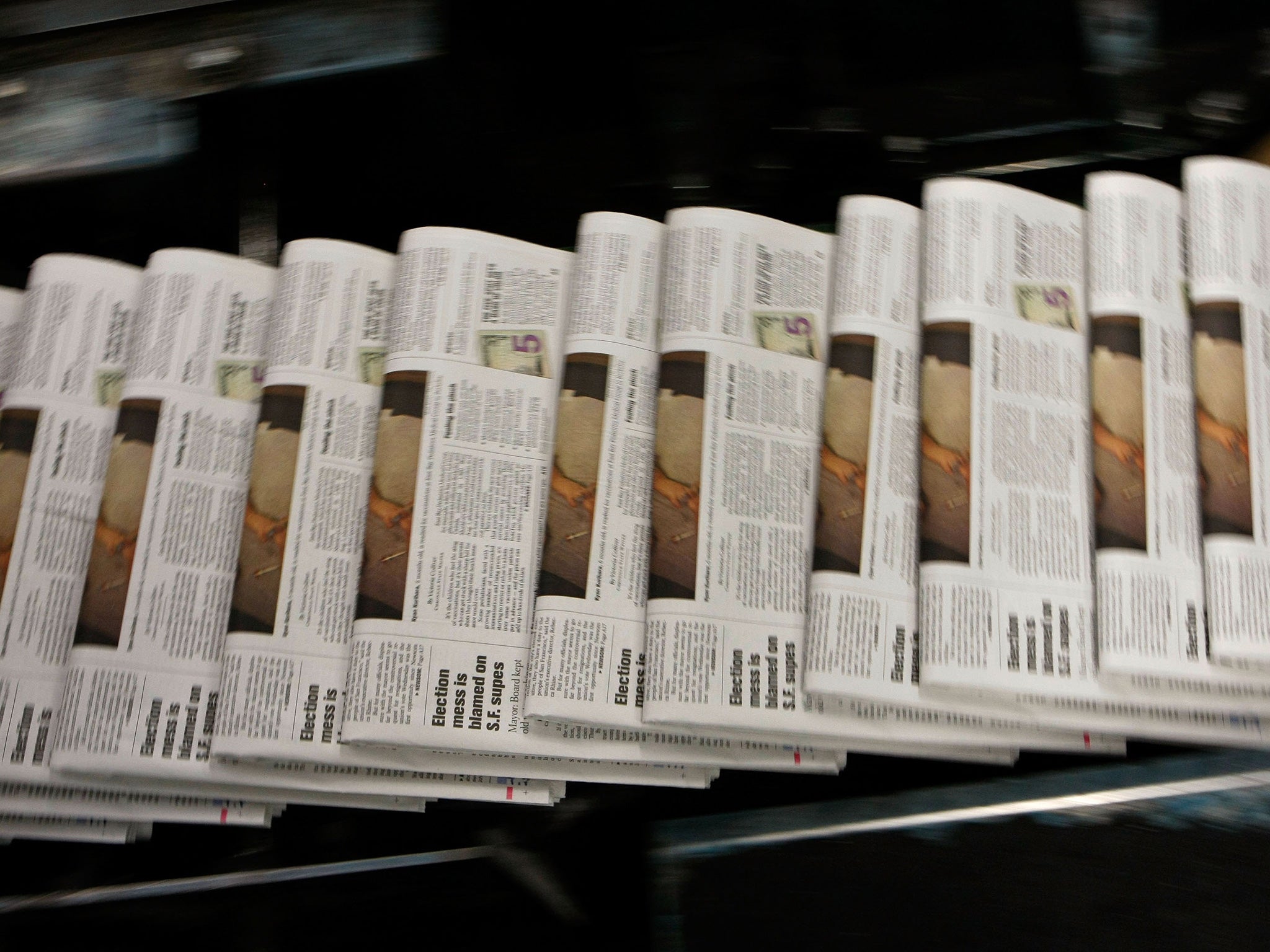Newspapers can change the world — but they probably shouldn't try to
The media can make a difference by informing, but party political views normally just preach to the converted


Your support helps us to tell the story
From reproductive rights to climate change to Big Tech, The Independent is on the ground when the story is developing. Whether it's investigating the financials of Elon Musk's pro-Trump PAC or producing our latest documentary, 'The A Word', which shines a light on the American women fighting for reproductive rights, we know how important it is to parse out the facts from the messaging.
At such a critical moment in US history, we need reporters on the ground. Your donation allows us to keep sending journalists to speak to both sides of the story.
The Independent is trusted by Americans across the entire political spectrum. And unlike many other quality news outlets, we choose not to lock Americans out of our reporting and analysis with paywalls. We believe quality journalism should be available to everyone, paid for by those who can afford it.
Your support makes all the difference.As a teenager, I read just one paper regularly. It was the one to which my parents subscribed and being a dutiful son it never much occurred to me to look at others, which I assumed to be rather inferior in any event. In that pre-internet age I read it because I wanted to know what was going on in the world (and in county cricket).
I didn't particularly question what I read. That was partly because the newspaper's political stance tended to chime with our pre-existing familial perspective; but it was also because we were living in a moderately more trusting time. Before there were blogs and tweets – even Wikipedia – to turn to, the mainstream media held a monopoly over knowledge and news which was hard to challenge.
University is where such simplistic notions are supposed to be challenged. Or not. In reality, university life seems more often to entrench the views of those who are already politicised, while everyone else decides beer and bar games are more engaging than current affairs.
For me, it wasn't until real life smacked me round the face at 21 that I started to reconsider my views of the media. The realisation that my parents' newspaper was not, in fact, the paragon of non-partisan objectivity came genuinely as a surprise.
I recount this dismal history of my simpleton youth because a complaint last week left me pondering again the entire question of what newspapers are for.
Having dealt with thousands of complaints about newspapers in the last 15 years, I have become used to the perennial grumble that such-and-such a paper is a disgrace because it is clearly biased. The Independent alone is, apparently, anti-Israel, pro-Israel, hideously leftist, disgracefully anti-Labour. We are against Putin; no, we are pro-Russia. We’re too right-on and green; we are biased against the organic farming lobby.
Whether the characterisations are correct, any newspaper must have a right to be partisan. Provided material is not inaccurate or misleading, there should be a considerable degree of latitude: a free press should be free to set out a view, support a policy; even urge readers how to vote in a general election. Free, but not obliged. The Independent, after all, has generally striven to be somewhat apart – to raise a voice, but not be a slave to political parochialism.
The complaint which startled me last week ran counter to the norm. A reader’s ire was not directed at a failure to be objective, but at a perceived excess of impartiality. Why be detached, why be politically neutral, he asked: the role of a paper should be to ‘change the world’.
I am unsure what Lord Justice Leveson would make of this. Karl Marx was a newspaper editor, of course, and he would have been keen on the idea. Some newspapers in this country have certainly claimed to have changed the course of general elections, which is perhaps what the reader was getting at and applauding.
The notion of newspapers or other media actively trying to alter the course of political discourse may seem unsavoury. But to a certain extent the reader is right: anyone who writes anything wants to have an impact on their audience and to deny that is foolish.
What he missed, however, is that the world can be changed as much by education as by being harangued. Indeed, newspapers with trenchant, party political views are normally preaching to the converted. One which chooses not to fight for one side or another might, paradoxically, have a greater impact than one which mercilessly tows a party line.
Join our commenting forum
Join thought-provoking conversations, follow other Independent readers and see their replies
Comments